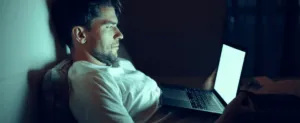California Child Pornography Attorney – Penal Code 311 PC
How Can A Child Pornography Attorney Help Me?
The accusation of possessing or distributing child pornography is harrowing. But let’s first describe child pornography. Porn is any obscene material that portrays sexual activity in a patently offensive manner that lacks serious literary, artistic, political, or scientific purpose. It is a crime and a felony offense that comes with lifelong consequences. If the state arrests you for possession or distribution of child porn, you will need a defense attorney with experience fighting porn cases. Our California sex crimes lawyers at My Rights Law are highly experienced in this area of law and can help you fight to minimize the consequences of your arrest. Contact our criminal defense team immediately at (888) 702-8845 or leave a message on our secure web form to get your free legal consultation.
Elements Of Child Pornography – Penal Code 311 PC
Most child pornography crimes occur from online viewership, possession, distribution, or advertisement. Child porn charges also arise from cellular devices, personal magazines, and photo albums. In short, anything that can display an image can be evidence used against you.
Examples of this crime include:
- Sending, tweeting, reposting, or sharing a video of a teenage girl flashing the camera
- Collecting magazines that show children naked in lewd poses
- Selling pictures of naked children
For the state to successfully charge you with child pornography, a prosecutor must prove specific elements of your alleged offense[1]:
- You knowingly owned, shared[2], duplicated, or produced child pornography.
- You hired, employed, or coaxed a minor into engaging in the production of child pornography.
- The person is under the age of eighteen.
- The material is obscene and does not serve a legitimate purpose.
- The material depicts sexual conduct involving minors.
Penalties For Child Pornography
Child porn crimes are wobbler offenses. This means that a prosecutor has the discretion to charge you with a misdemeanor or felony if an officer arrests you. If a judge or jury convicts you of a misdemeanor child porn offense, you’re looking at serving up one year in county jail. If a judge or jury convicts you of a felony child porn offense, you can serve up to three years in prison. Society has forced people convicted of child porn crimes out of their towns; the damage to your reputation may haunt you for years.
Depending on which tier the judge places you in, you may have to register as a sex offender for ten years, twenty years, or a lifetime. For example, a misdemeanor child porn offense puts you in tier one, which means you’ll register for ten years. This requirement will block many of your housing and career opportunities. It can severely impact your marriage, and it may be grounds for a court to deny custody to you if you and your spouse divorce post-conviction.
Other severe penalties include the stigma around the state accusing you of possessing or distributing child pornography. The stigma surrounding child pornography convicts is that you’re a threat to anyone you come across, regardless of that person’s age. The stigma surrounding you is that you will re-offend. This assumption of re-offending is unfortunate because it trivializes the reality that someone could have framed you, that the jury wrongfully found you guilty, or any commitment you have made to rehabilitate yourself. Long after you have served your time, others may continue to discriminate against you and deny you your right to work and have housing.
Defenses For Child Pornography
You must be aware of which defenses are at your disposal. You may argue that this is a false accusation and that you’ve never owned or shared child porn, but this is likely to be a weak defense considering the gravity of this crime’s nature. A seasoned child pornography defense attorney can better address which defenses are best for your particular case, but here is a brief list of arguments you may make.
Fourth Amendment Violation
Our US Constitution states that an officer may not unreasonably search nor seize your property without probable cause unless an exigent circumstance applies[3]. An officer has reasonable suspicion when they can point to articulable facts that would lead a rational person to believe that a crime is about to be or has been committed. An officer may refer to their experiences in law enforcement to justify the basis for the belief. But it can be difficult for an officer to justify searching your home. An officer can’t come into your home and arrest you just because someone accused you of possession or distribution. Even if someone tipped the officer off, the officer must still secure a warrant to search your home or a specific room in your home for child porn.
A search or seizure within your home is presumed unreasonable unless the officer has a warrant. The warrant must accurately spell your name and address. A court must throw out evidence an officer gathers if there’s an error on the warrant. Of course, this rule doesn’t apply if an officer came to arrest you for a separate crime and stumbled upon child porn in your home or stopped by for a lawful visit and the porn was in plain view.
Legitimate Purpose
Suppose that you are an artist. You want to walk your students through the history of art development and discuss how artists have censored or exploited children’s bodies. Therefore, you showcase artwork displaying children in bondage or with their intimate body parts revealed. You discuss how this artwork reflects how society, at that time, viewed children, children’s rights, the protection (or lack thereof) of children, rituals that some cultures believed regarding children’s bodies, and so on. In this case, despite possessing and distributing illegal pornography, there is a strong chance you may argue that this material served an artistic, literary, and political purpose[4].
Or suppose that you’re an activist. You participate in a rally about safeguarding children’s rights, and you bring a poster of naked children engaged in sexual conduct. Although the material may be obscene and patently offensive, a skilled attorney can argue that your poster served a legitimate political purpose.
Now, picture this. You have made it your mission to find as many child predators as possible. You know that you must be creative on your vigilante quest. You decide to create a fake web page that claims to advertise child porn and promises to sell exclusive albums to the right buyers. In reality, you’re hoping that you can turn them in to be arrested by getting the name, address, and card information from these buyers. But you also know that you must do all you can to make your webpage look natural, so you use a photoshop app to create seemingly naked children in obscene poses. Under these circumstances, you may have a successful defense.
Entrapment
An officer has entrapped you by luring you into committing an unlawful act that you wouldn’t have committed otherwise[5]. For example, suppose an undercover officer comes over with alcohol. The officer gets you drunk, opens your laptop, and begins surfing child porn sites. You insist that they leave. They strongly urge you to watch with them, and you oblige to commit the crime.
Bear in mind that you can’t use the entrapment defense if the officer only presented an opportunity for you to commit this offense. This defense won’t apply to you even if the officer opened the laptop and began surfing child porn sites with you. Under this circumstance, the officer did not coax or coerce you to participate. Likewise, merely suggesting or asking you to commit this offense isn’t enough. The pressure from the officer must have been so overwhelming that you couldn’t say no.
Not Knowingly
One of the elements of this crime states that the perpetrator must knowingly be aware that the subject of the material is a minor. Therefore, you have a viable defense if you reasonably believed that the minor was an adult (eighteen or older). You must explain why you reasonably believed the model was an adult, such as the person who handed you the material said that the models were college-aged women. Perhaps the model looked too old to be a child due to physical or facial features, so nothing suggested that this person was underage.
California Child Pornography Criminal Defense Attorney
If you were charged with child pornography, then consult with a child pornography attorney immediately. They can help you evaluate your legal rights, including how you could avoid a conviction. My Rights Law is experienced in helping people accused of crimes, including serious felonies such as child pornography. To get started, contact a lawyer at My Rights Law for a free consultation by calling (888) 702-8845 or sending a message on our secure online form.
Other sex crime charges we defend include pimping and rape
FOOTNOTES
[1] California Penal Code 311
[2] CalCrim 1141
[3] Fourth Amendment to the U.S. Constitution
[4] CalCrim 1141
[5] People v. Barraza, (1979) 23 Cal.3d 675, 689.



















